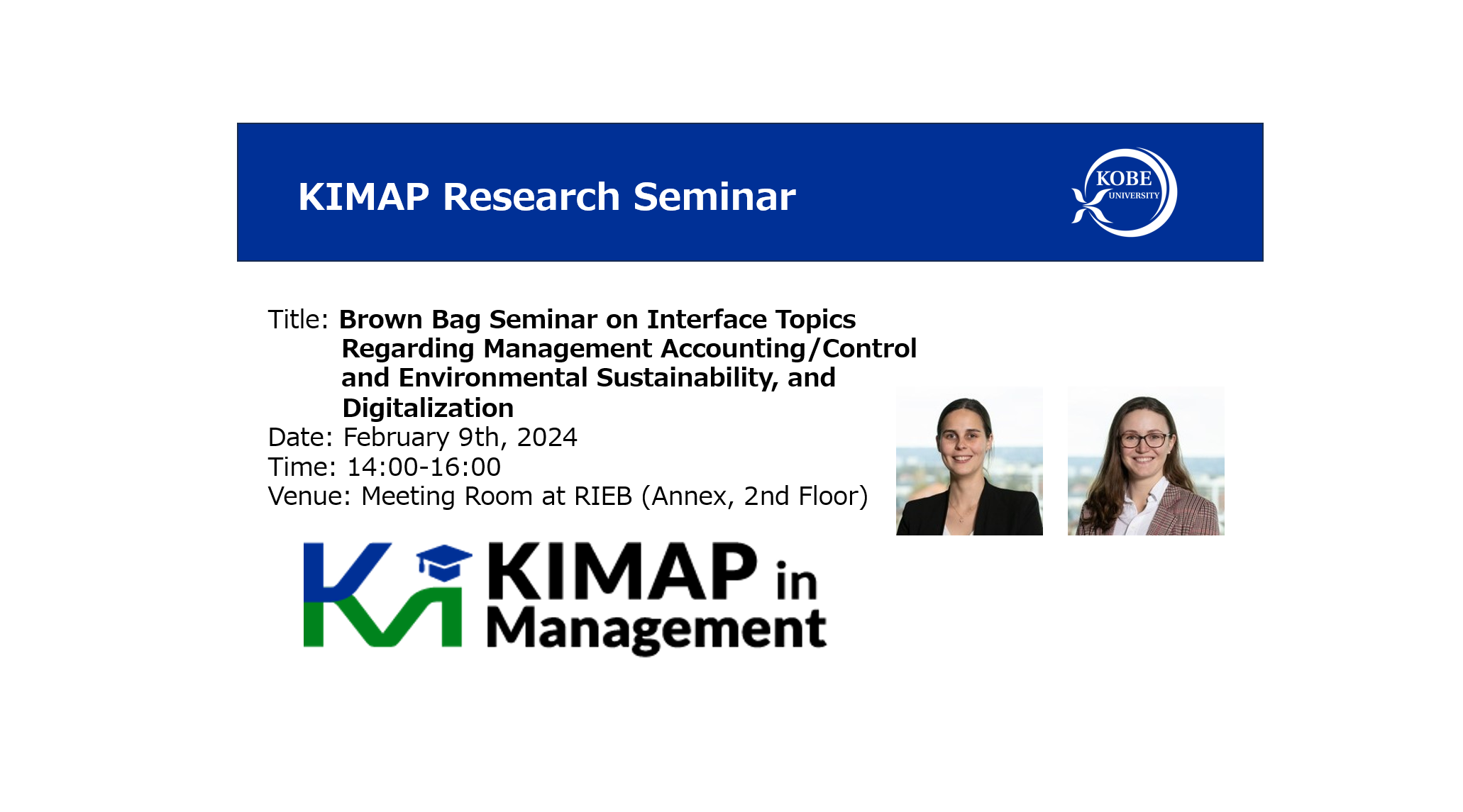Date
Friday, February 9thTitle
Brown Bag Seminar on Interface Topics Regarding Management Accounting/Control and Environmental Sustainability, and DigitalizationVenue
Meeting Room at RIEB, Kobe University (Annex, 2nd Floor)Capabilities, Use and Benefits from Business Analytics in Management Control – the Crucial Role of Organizational Size and Data Science Departments
Presenter
Xenia BOERNER (Faculty of Business and Economics, Dresden University of Technology)Time
2:00 p.m.-3:00 p.m.Abstract
High expectations are placed on new technologies such as business analytics (BA) to create a variety of benefits for management control (MC) departments. However, empirical evidence on this is scarce and ambiguous. In this study, we examine whether and how the extent of BA capabilities (BAC) and the extent of BA use in MC departments are related to transactional, informational, strategic, and transformational benefits. We draw on socio-technical systems theory and contingency theory and analyze survey data from 322 large German companies through partial least squares structural equation modeling (PLS-SEM). We find that the extent of BAC is positively related to the extent of BA use, which in turn is positively related to the extent of the benefits described above. However, organizational size negatively moderates the creation of benefits, as the relationship between the extent of BA use and the extent of benefits created in MC departments is smaller for larger companies. Additionally, we find that the existence of a data science department in larger companies is detrimental to MC departments in realizing a high extent of benefits from BA. Thus, this study provides important implications for the creation of benefits from BA for MC departments.Environmental Management Control Systems on the Relationship with Environmental and Financial Performance
Presenter
Valeria KNELS (Faculty of Business and Economics, Dresden University of Technology)Time
3:00 p.m.-4:00 p.m.Abstract
TNumerous studies have explored the advantages of management control systems (MCSs) for financial performance (FP) and environmental MCSs (EMCSs) for environmental performance (EP). Based on a dyadic survey of 112 large German firms, we find that EMCSs have the capacity to enhance both FP and EP. Employing partial least squares (PLS) structural equation modelling (SEM), we delve into the contextual factor of ‘integration of MCSs and EMCSs’, operationalized through two dimensions: technical integration and management integration. These dimensions serve as moderators in assessing the relationship between EMCS and EP or FP, respectively. We find that the EMCS–EP relationship is positively moderated by management integration, while the EMCS–FP relationship is positive only when both management control systems are technically integrated. Our results offer insights into the contingencies governing the utilization of control systems to enhance performance. We underscore that the manner in which these systems are integrated is crucial for the relationship between EMCS and performance. Consequently, both the level and the type of integration are crucial and associated with different types of performance. Thus, firms have to address different competencies within the organization. This results in practical implications for the management regarding the allocation of resources for integration of MCS and EMCS.Who Should Attend
Faculty, Graduate Students, and People with Equivalent KnowledgeCo-organized By
RIEB SeminarDetails
https://www.rieb.kobe-u.ac.jp/en/seminar/seminar_all/2023/202402091400.htmlRegistration
Please register at the URL below by Thursday, Feburary 8th.https://www.ocans.jp/kobe-u/entry/all?FID=RknB5mN_
